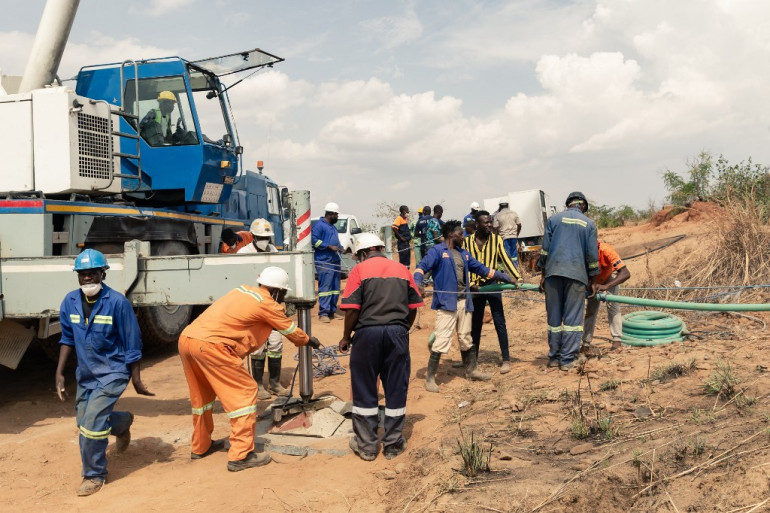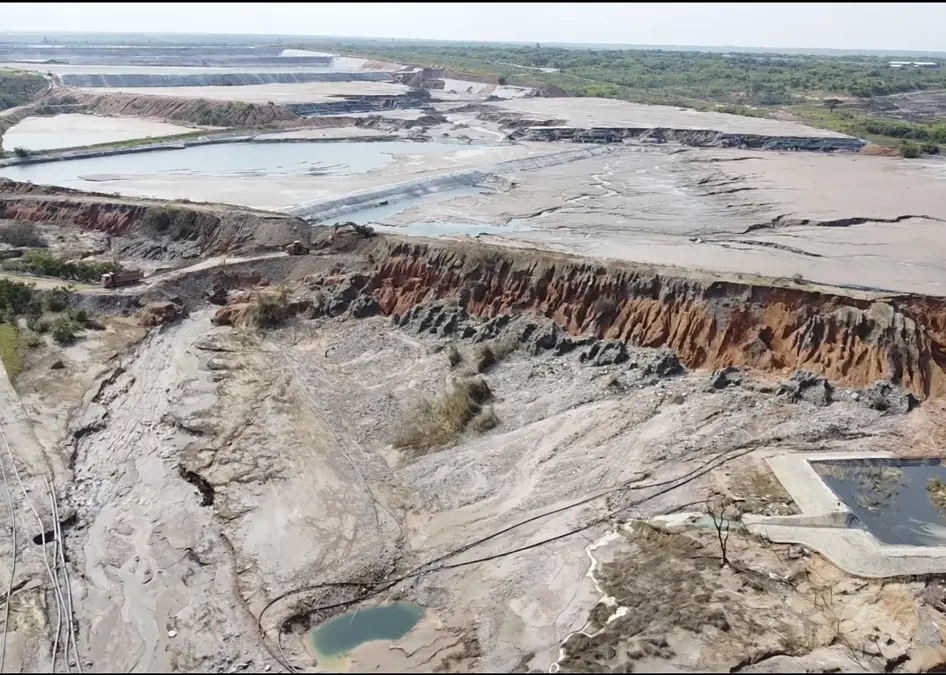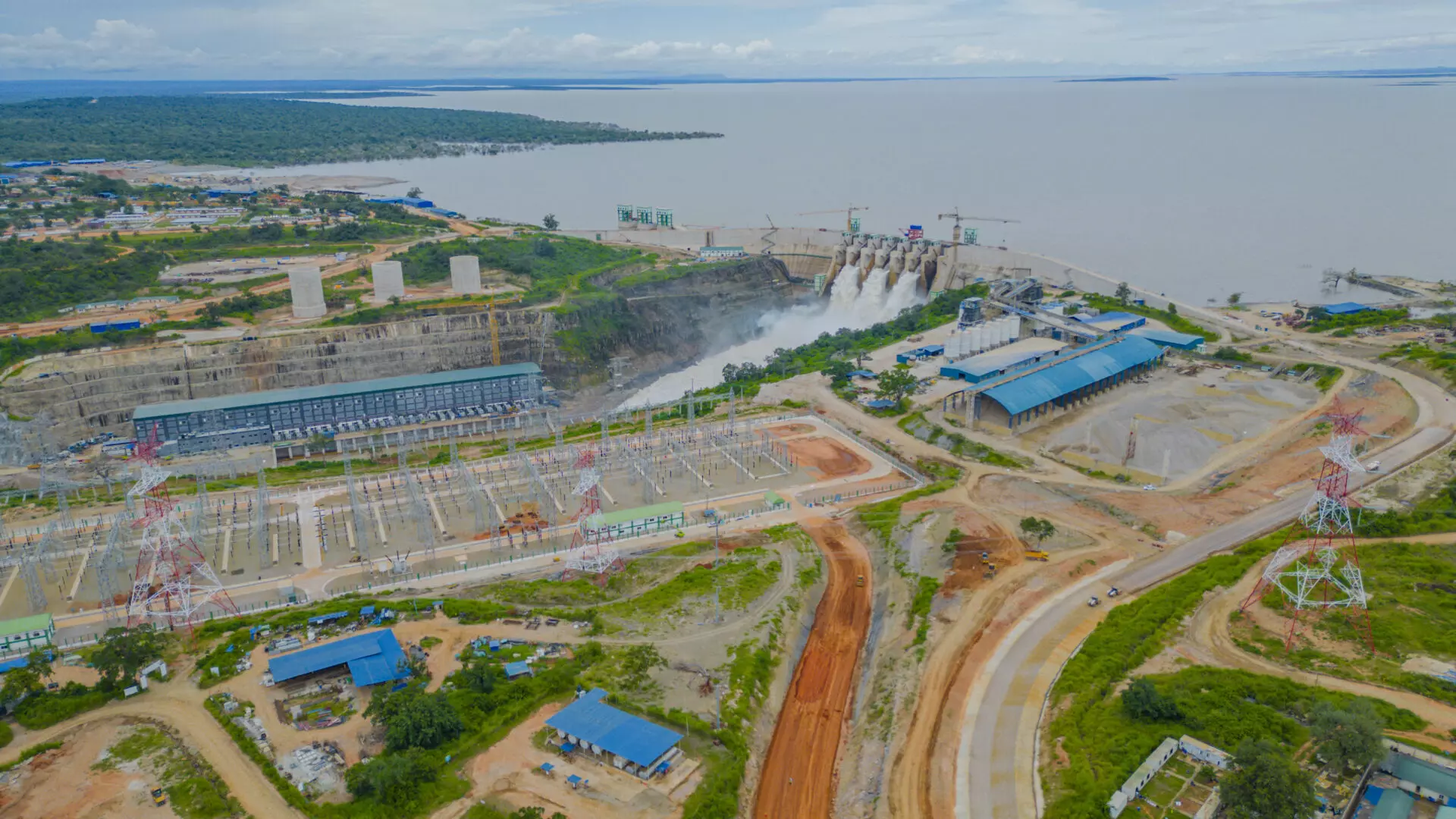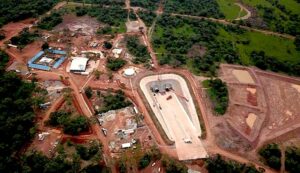Zimbabwe struggles to save trapped miners as flood halts rescue
Rescue workers install a water pump to drain water from a mine shaft [Jekesai Njikizana/AFP]
By Chris Muronzi
Harare, Zimbabwe – Hope is fading by the day for 40 informal gold miners trapped in a collapsed mine in Zimbabwe for more than 48 hours ago after rescue operations were stalled due to flooding.
The disused mine collapsed late on Wednesday in Bindura town, about 70km (43 miles) north of the capital, Harare, after uncontrolled blasting by informal miners keen on making quick cash in the economically troubled southern African country.
Who is to blame for Zimbabwe’s land reform disaster?
3 years after Mugabe overthrow, many Zimbabweans say life’s worse
Zimbabwe president says currency under attack as prices spiral
Wellington Takavarasha, the head of Zimbabwe Miners Federation, which represents small scale miners in the country, told Al Jazeera the mine was still flooded, but held out hope for the trapped miners.
“Nothing much has changed on the ground. We are currently dewatering the mine because it is flooded so that rescue operations can resume. The ground is too wet right now and that makes rescue operations dangerous,” he said.
“This is an underground mine so I think the miners could have sought safety in any one of the tunnels. But the mine is flooded.”

he added that the number of those trapped underground could be higher because informal miners do not keep a tally of people operating in the mines they occupy.
So far, only six miners have been rescued from the debris and are recovering at a hospital.
Just last week, 10 illegal gold miners were buried alive at Premier Estate, located in the eastern part of the country, when the owners of the mine commenced reclamation – a process of restoring mined land to a natural or economically usable state.
Deepening crisis
Zimbabwe is in the throes of a deepening economic crisis characterised by high inflation at close to 500 percent, foreign currency shortages, a devastating mix of a rapidly weakening currency, and stagnant salaries and high unemployment.
In December last year, the World Food Programme warned the country was facing its worst hunger crisis in 10 years, with half of its population – 7.7 million people – being food insecure.
A combination of unemployment of more than 90 percent and hunger has forced common Zimbabweans to take up risky informal jobs such as illegal gold mining.
The Centre for Natural Resource Governance (CNRG) director, Farai Maguwu, said mine collapses are frequent because artisanal mining is now a year-round occupation for many Zimbabweans.
“Big mines have been scaling down over the years. When they stop producing, syndicates linked to politicians invade these mines and they don’t adhere to sound safety measures when mining,” Maguwu said.
“The kind of mining artisans do is dangerous as most of them don’t have mining or engineering knowledge.”
Artisanal mining
Maguwu said the government’s failure to revive the economy has pushed Zimbabweans into artisanal mining.
“In this season, we should be seeing less and less artisanal mining. Instead, people should be working the fields as the ground is wet and risky to mine,” he said.
“Climate change-induced droughts has meant that artisanal mining is now a full-time all-year job because the ground is often dry,” he added.
Most parts of Zimbabwe are currently witnessing a wet spell.
According to the Zimbabwe Miners Federation, about 50,000 small-scale miners are registered in the country, each employing at least 10 workers.
The federation says small-scale and artisanal mining sector in Zimbabwe benefits more than 1.5 million people.
The landlocked southern African country sits on vast gold and mineral endowment, including diamonds and platinum. Gold accounts for 60 percent of the country’s exports.
Zimbabwe’s gold deliveries to Fidelity Printers and Refineries, the sole buyer of gold in the country, plunged 73 percent in September to 1.36 tonnes from 2.8 tonnes in the same period last year, a decline blamed on smuggling by small miners.
SOURCE : AL JAZEERA
Share this content:















Post Comment